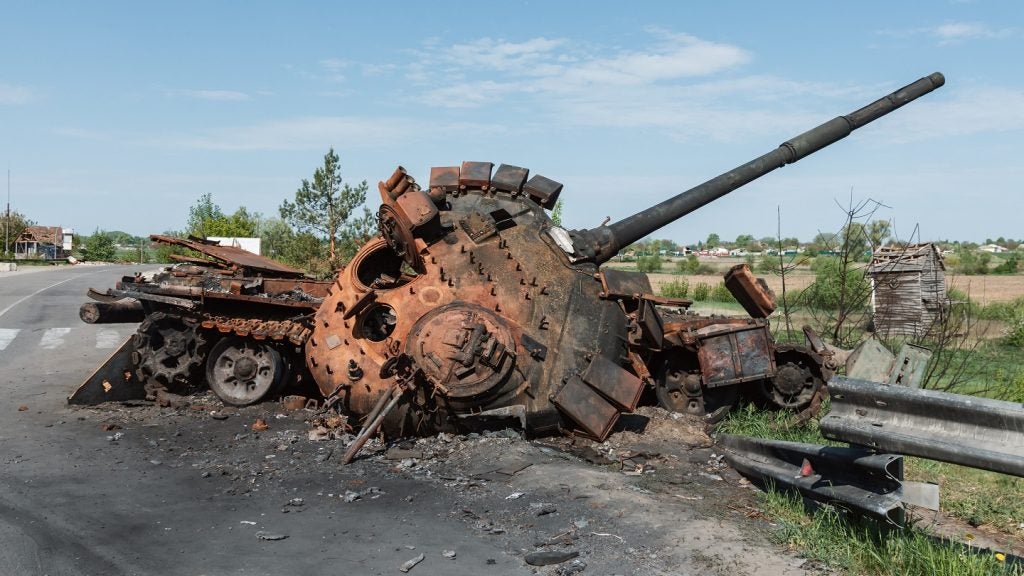Despite an increase in Russian main battle tank (MBT) and other armoured combat vehicles (ACV) losses over the past three month of fighting in Ukraine, Moscow’s ramping up of its industrial capacity means that it can maintain its current level of offensive activity “for the foreseeable future”, stated the UK Ministry of Defence (MoD).
In a 29 January 2024 post on the social media platform X, the UK MoD’s Defence Intelligence stated that since early October 2023 Russian ground forces have been on the offensive in eastern Ukraine. During this period, Russian losses have increased with its forces likely losing up to 365 MBTs and 700 ACVs, achieving “minor” territorial gains.
“However, Russia can probably generate at least 100 MBTs per month and therefore retains the ability to replace battlefield losses and continue this level of offensive activity for the foreseeable future,” the UK Defence Intelligence stated.
In addition, UK Defence Intelligence stated that from 24 February 2022 to 25 January 2024, Russian ground forces likely lost around 2,600 MBTs and 4,900 other ACV in Ukraine. Russia losses of combat vehicles in 2023 was around 40% fewer than in 2022.
“It is highly likely that the reduction in armoured vehicle attrition rates was due to the increasing positional nature of the conflict in 2023 and because Russia spent a significant proportion of the year in a defensive posture,” UK Defence Intelligence wrote.
Russia losing around 12 MBTs per week since mid-November
In mid-November 2023, the UK MoD estimated that Russia’s invasion of Ukraine had cost Moscow more than 2,400 MBTs – equivalent to around 15% of its pre-war inventory – at the time.
The figures, released on 13 November 2023 as a UK parliamentary written response, also detailed Russian equipment losses to be “over 7,117 armoured vehicles”, including 2,475 MBTs and 1,300 artillery systems.
The latest estimate of Russian tanks losses, compared to those provided in mid-November last year, indicate an approximate loss of 125 MBTs over the past 10 weeks of combat.
According to GlobalData, Russia’s land inventory prior to its invasion of Ukraine indicate a potential fleet of 16,970 tanks, comprised of 550 1990s era T-90s, 3,450 T-80s and 8,950 T-72s from the 1970s, with a further 2,000 T-64s and 2,400 T-62s, originating from the 1960s. Of the new T-14 Armata MBTs, Russia was thought to hold around 20 in its order of battle.
Earlier GlobalData research conducted in December 2022 calculated that Russia’s equipment loss in the first ten months of the war in Ukraine had cost Moscow more materiel than was seen in both Chechen wars combined.
The industrial capacity of Russia and its ability to replace current battlefield losses, as well as maintain production of in-demand artillery ammunition, is in stark contrast to Ukraine, which is reliant on Western support to maintain its forces with materiel.
A halt to Ukraine of military funding assistance from the US and EU at the end of 2023, combined with a lack of artillery ammunition being provided to Kyiv, indicate a difficult start to 2024 as the war nears its third year.









